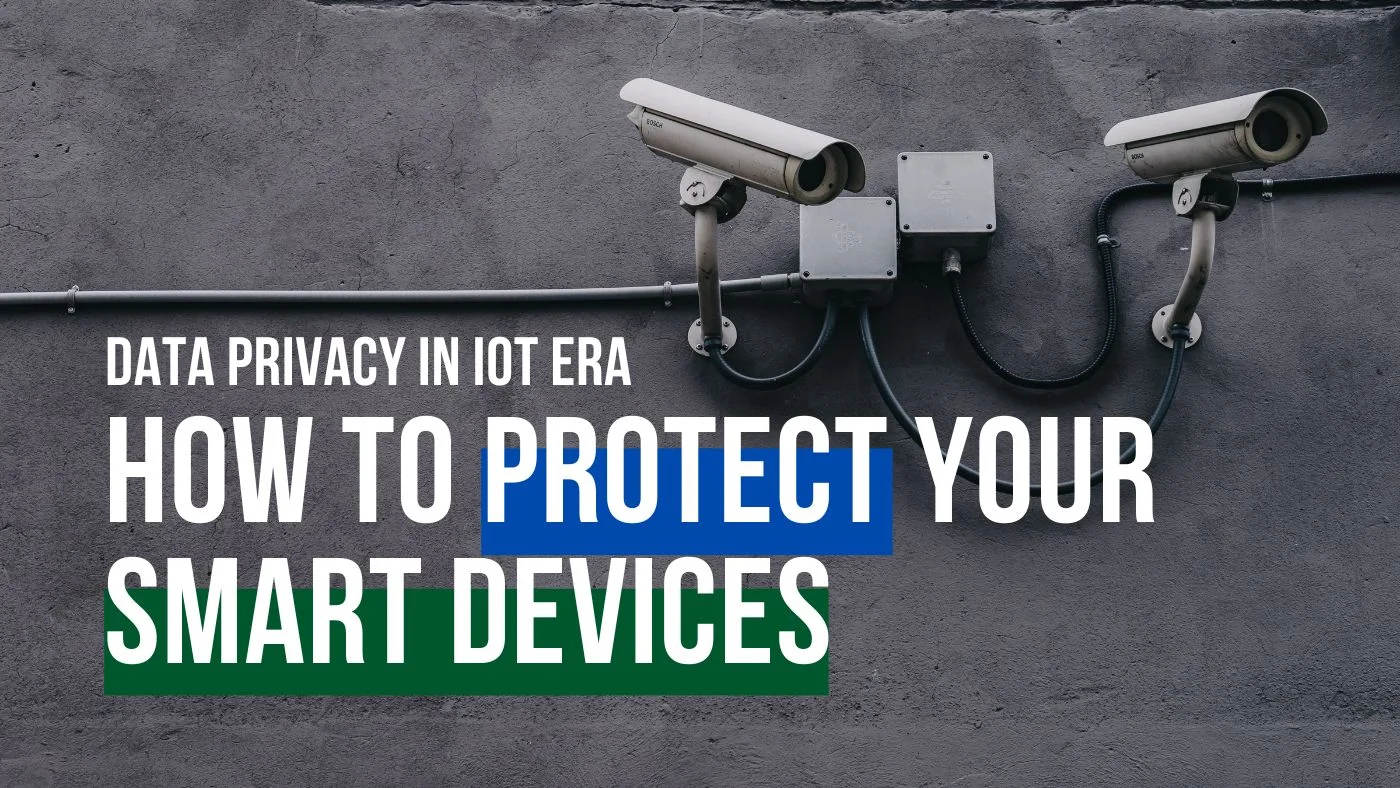Data Privacy in the IoT Era: How to Protect Your Smart Devices
Learn the simple steps you can take to maximize your IoT security and safeguard your sensitive data.- Article authored by Kunal Chowdhury on .
Learn the simple steps you can take to maximize your IoT security and safeguard your sensitive data.- Article authored by Kunal Chowdhury on .
In 2023, we are well and truly in the smart home era and the Internet of Things, or IoT, is constantly growing with new devices being launched yearly. From smart speakers and refrigerators to TVs and even plugs, smart homes provide us with convenience.
They also grant us the time for more important things, such as more socializing and family time instead of labor-intensive chores and tasks.

The IoT era may have many positives, but it’s essential to know about the dangers of hacking and cyberattacks because unfortunately, most IoT devices lack built-in security. This makes them vulnerable to hackers and since many of them are interconnected, if one device gets hacked, it compromises the security of the other devices. Here are some things to keep in mind to protect your privacy when using your connected IoT devices.
If your password is “password1” you may want to rethink that. Using a simple or common password for your IoT devices makes it ridiculously easy for hackers to attack them. A strong and unique password is your best defense against cyber hackers, and be sure to use a different password for each device.
If you use the same password for all of your devices and you get hacked, every other device could be in danger too. Although it’s inconvenient to remember multiple different passwords, it would be even more inconvenient to have your smart devices hacked. To make it easier, it’s a good idea to write each password down in a diary or notebook; just don’t store them electronically where they can easily be seen.
VPNs, or Virtual Private Networks, that have been fully tested can provide comprehensive protection against hackers. A VPN will keep your IP address hidden and secure your online activity using advanced encryption. When you hide your online activity, it’s incredibly difficult for hackers to access your personal data.
If you’ve ever forgotten to rename your router, you’re not alone. Many people stick with the name provided by the manufacturer which could affect your Wi-Fi’s security. Choose a name that isn’t associated with you and make sure you change any default security or privacy settings. Also, never shop online using public Wi-Fi because it’s easy for hackers to steal your personal details.
These days, many devices can be connected to the internet. However, this doesn’t mean you need to connect them all, because after all, do you really need your refrigerator connected to your Wi-Fi? Take a look at the features of each device and see which ones need Wi-Fi connectivity to function, and which ones can be left unconnected.
Using the latest firmware protects your devices and reduces the possibility of being hacked. You can eliminate any exploits as they happen and if possible, turn on the option of automatic update checks to further protect yourself. Many IoT manufacturers send automatic updates or you can check out their website regarding security patches and updates. Updating your devices regularly also gets rid of any security flaws that older software may have left behind.
Multi-factor authentication, or MFA, is a very popular login technology, and for good reason - it’s practical, secure, and simple to set up. MFA works by asking for your identity confirmation to accept your login attempts.
For example, you may have to confirm your identity by entering a one-time code sent to you via email or text. The code will be completely random, making it impossible to guess, and it will only be valid for a limited amount of time. Unfortunately, not all devices or IoT apps have MFA, but if it is available, you won’t regret putting it in place.
Unfortunately, cyberattacks will always happen and criminals are constantly finding new ways of hacking into devices. Putting security measures in place is crucial for protecting your smart home. It may seem like a time-consuming process, but it’s worth it if your devices and personal data remain protected.
Thank you for visiting our website!
We value your engagement and would love to hear your thoughts. Don't forget to leave a comment below to share your feedback, opinions, or questions.
We believe in fostering an interactive and inclusive community, and your comments play a crucial role in creating that environment.